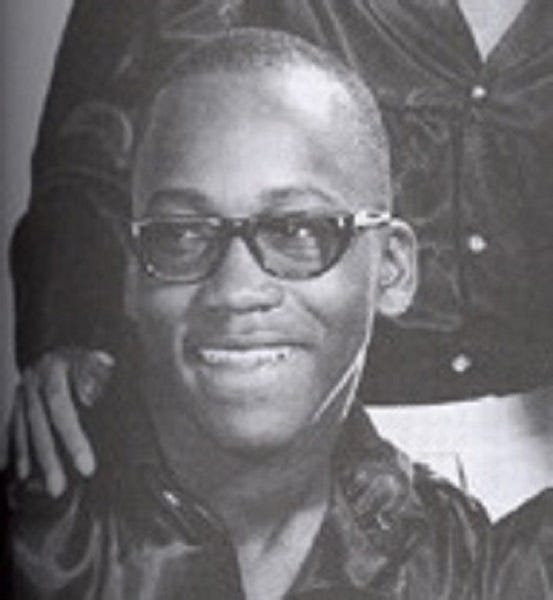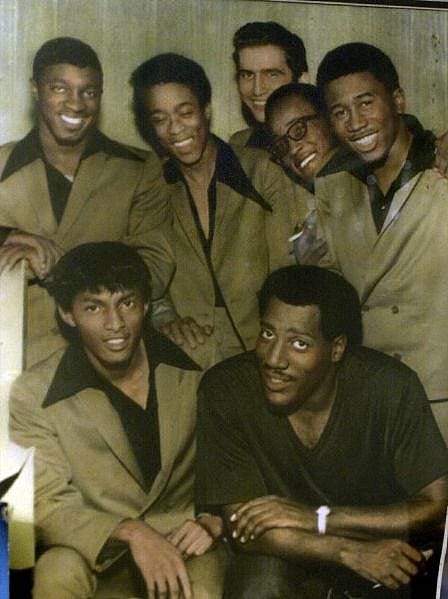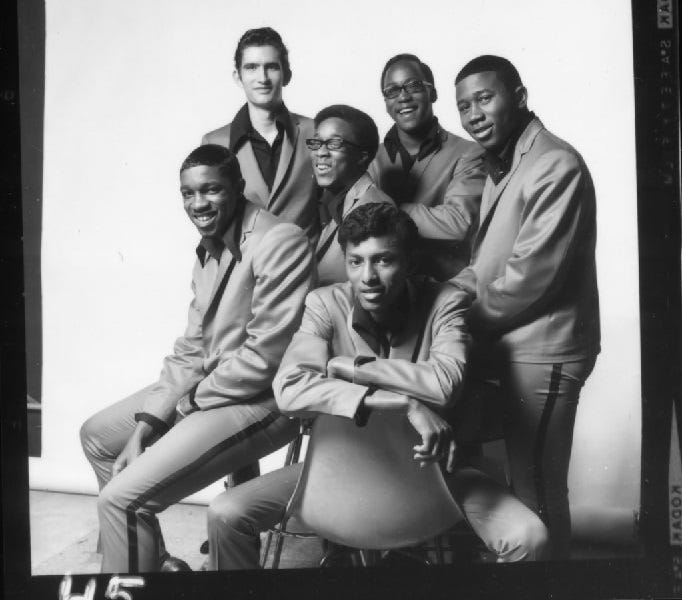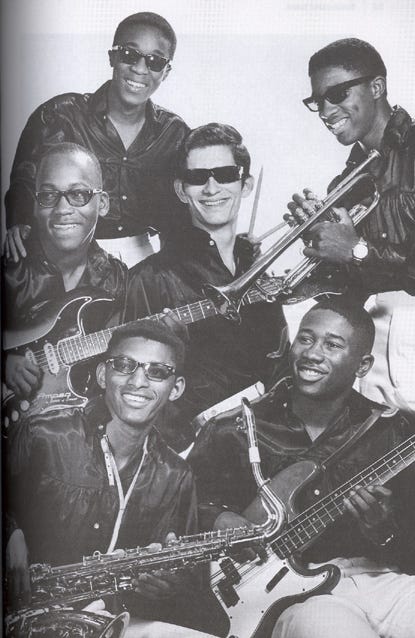Jimmie King (June 8, 1949 – December 10, 1967) – Bar-Kays Boogaloo (1967)
The original Bar-Kays guitarist was only 18 when he died, the youngest band member to perish in the plane crash that also killed Otis Redding.
View most updated version of this post on Substack
Search our full archives
Jimmie King was the original guitarist in the Bar-Kays, the Stax musicians who became Otis Redding’s backing band. At only eighteen years old, King was the youngest of the four band members who perished along with Redding in a plane crash in late 1967, and would have turned 75 today.
Jimmie (or Jimmy) King, Jr. was one of the Bar-Kays’ original members, with the band since they formed in the mid-sixties when they were all in their teens. They started out playing clubs around Memphis. Besides King on guitar, there was Ben Cauley on trumpet, bassist James Alexander, Ronnie Caldwell on organ, Phalon Jones on saxophone, and drummer Carl Cunningham.
After Cauley began working in the horn section on recording sessions at Stax, the rest of the band auditioned several times without luck to become artists there. Eventually, in early 1967, they won the label’s management over with an original instrumental funk jam they had all composed titled “Soul Finger.” It was recorded and prepared for release as their first single.
The recording session included neighborhood kids who had been hanging around outside the studio, instructed by Stax songwriter/production partners Isaac Hayes and David Porter to shout out “Soul Finger!” and paid with bottles of Coca-Cola. Around this time, Otis Redding decided they would become his backing band.
In Robert Gordon’s 2013 book Respect Yourself: Stax Records and the Soul Explosion, Redding’s widow Zelma recalled:
“Otis loved those kids so much. One of the reasons for getting a new, bigger plane was so the Bar-Kays could tour with him and he could get them home on Sunday night or Monday morning so they could go to school.”
“Soul Finger” was released on April 14, 1967 on the Stax subsidiary Volt and quickly climbed the charts. Its B-side was the funky cut “Knucklehead,” co-written by Booker T. & the M.G.’s members Steve Cropper and Booker T. Jones, who played harmonica on the track. The single peaked at #3 R&B, crossed over to #17 on the Billboard Hot 100, and was issued on Atlantic Records for worldwide distribution.
As a result of its success the Bar-Kays immediately began recording a full album. They wrote several tracks themselves. For their next single, they co-wrote another funky jam with David Porter, “Give Everybody Some.” They memorably performed it and “Soul Finger” live on a local TV show sometime during the spring of 1967.
“Give Everybody Some” was produced by Porter and Hayes and released in September, 1967 with “Don’t Do That” on the flip, co-written and produced by King and the rest of the band.
Their full-length album Soul Finger had been recorded on June 23, and released a few weeks later on July 10, 1967. Arguably the album’s strongest track besides “Soul Finger” that the band wrote themselves was their de facto theme song, the very funky “Bar-Kays Boogaloo” that featured a superb solo by King.
Another highlight that showcased King’s playing was their instrumental original “House Shoes,” on which organist Ronnie Caldwell also shone.
Late in the year, they performed “Soul Finger” live on the Cleveland music TV show Upbeat, taped at the ABC affiliate WEWS-TV 5. It was an epic performance that showed how much their sound had already tightened and matured and their stage presence developed in the space of less than a year at Stax. They seemed poised for continued greatness, with a limitless future.
Tragically, on December 10, 1967, King and three of the other Bar-Kays (Ronnie Caldwell, Phalon Jones, and Carl Cunningham) plus their valet Matthew Kelly lost their lives along with Otis Redding when their plane crashed into Lake Monona, near Madison, Wisconsin on a foggy, rainy afternoon. They were attempting to land at a nearby airfield to play their next concert in Madison that night. It was later determined that Redding’s 26-year-old pilot was inexperienced, having previously logged just 118 hours flying twin-engine aircraft.
Trumpeter Ben Cauley was the sole survivor of the crash, seated directly behind Redding, who was strapped into the co-pilot’s seat. Bassist James Alexander had been on another plane. Cauley and Alexander later re-assembled the group with a new lineup, who went on to great success as funk superstars during the seventies and beyond.
Happy 75th Heavenly Birthday to the great Jimmie King.
Further info:
“The Innovators: Spotlight on The Bar-Kays,” StaxRecords.com.
"The Day the Music Died," Memphis magazine, December 1, 2007.
“A Look Back: Ben Cauley on the plane crash that took the lives of Otis Redding and members of the Bar-Kays,” Memphis Commercial Appeal, December 9, 2007.
“Bar-Kays Survivor Recalls Crash That Killed Otis Redding,” WREG.com, December 12, 2012.
Respect Yourself: Stax Records and the Soul Explosion, by Robert Gordon, Bloomsbury USA, 2013.
Dreams to Remember: Otis Redding, Stax Records, and the Transformation of Southern Soul, by Mark Ribowsky, Liveright Publishing, 2016.
Otis Redding: An Unfinished Life, by Jonathan Gould, Crown Publishing, 2018.
#soul #funk #Stax #OtisRedding #BarKays #JimmieKing








'Soulfinger' is such a great album! I also love Cauley & Alexander's re-formed funky, soulful & hard rockin' Bar-Kays (up to 'Coldblooded'). RIP Jimmy, Ronnie, Phalon, Carl & Otis (and the other two who were on that plane).